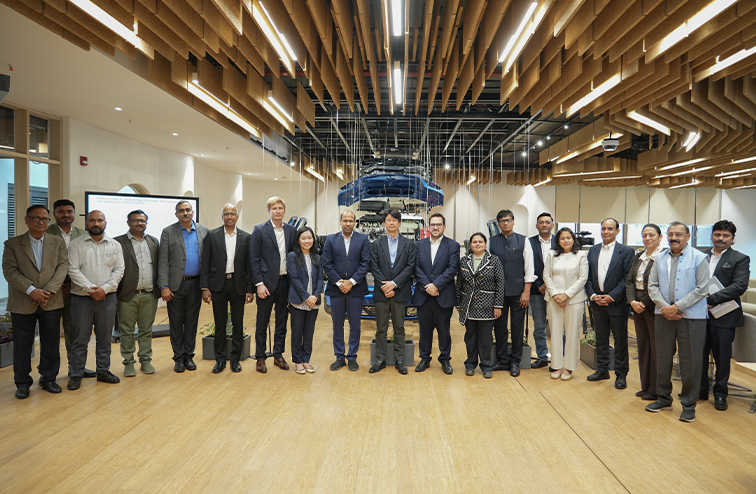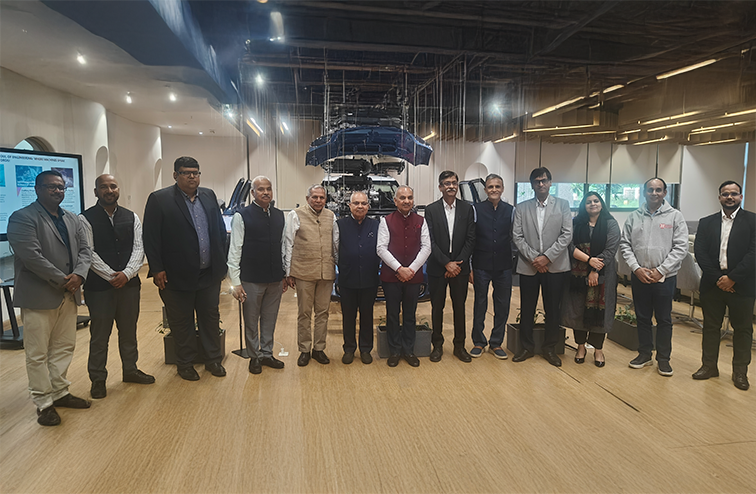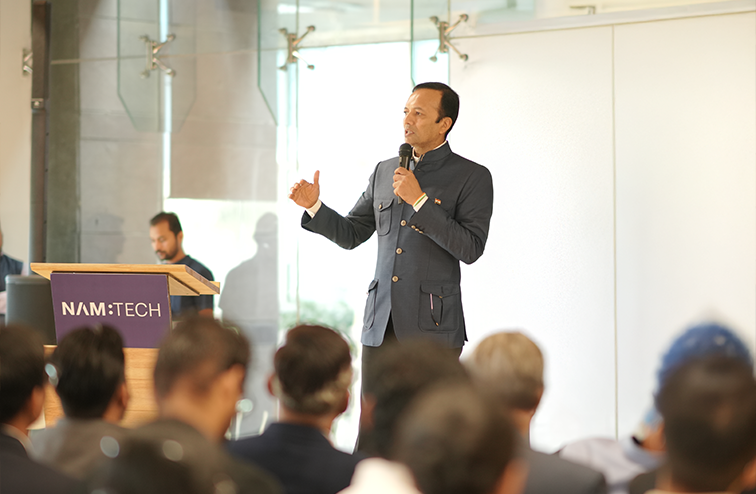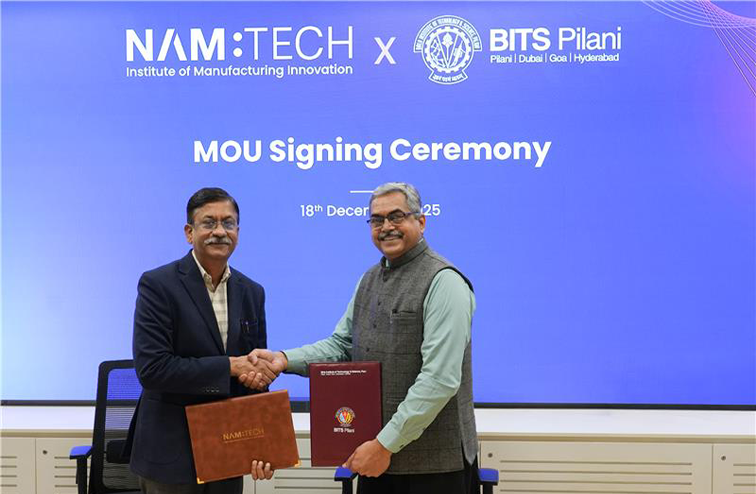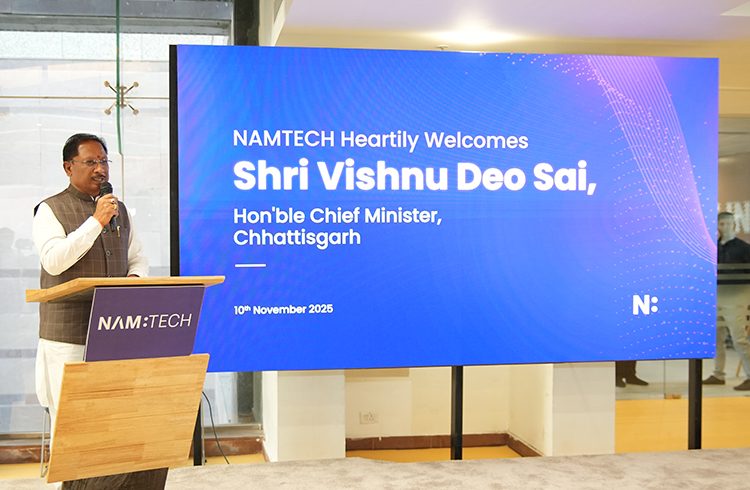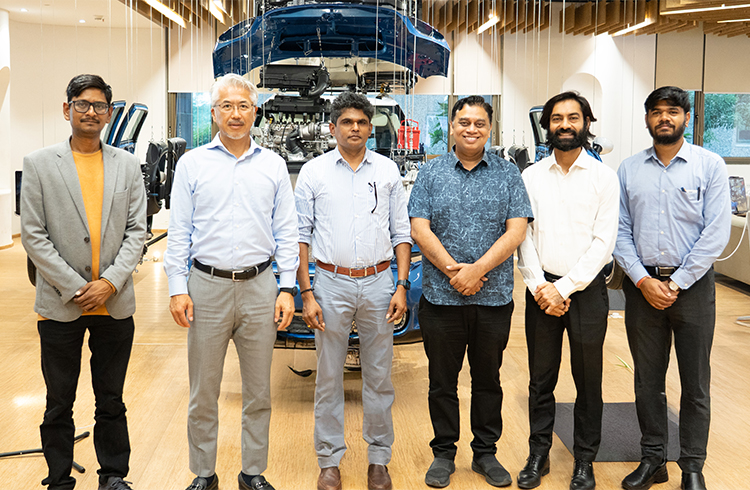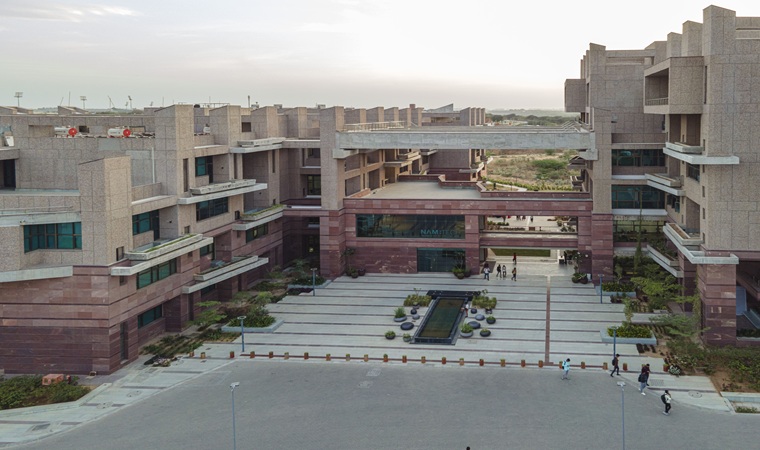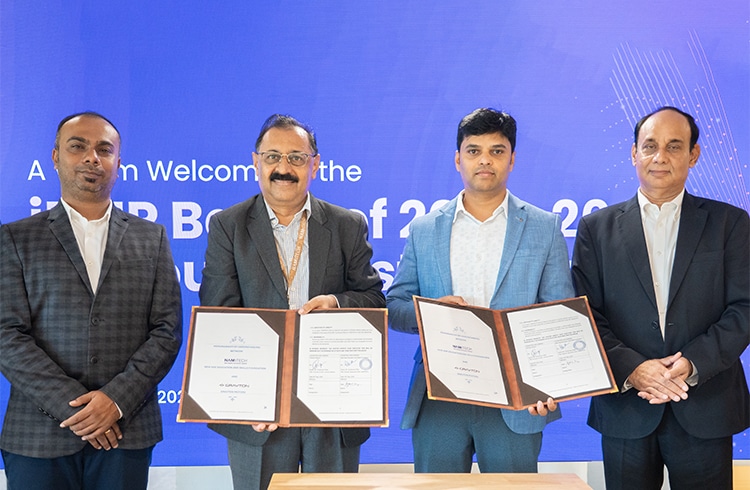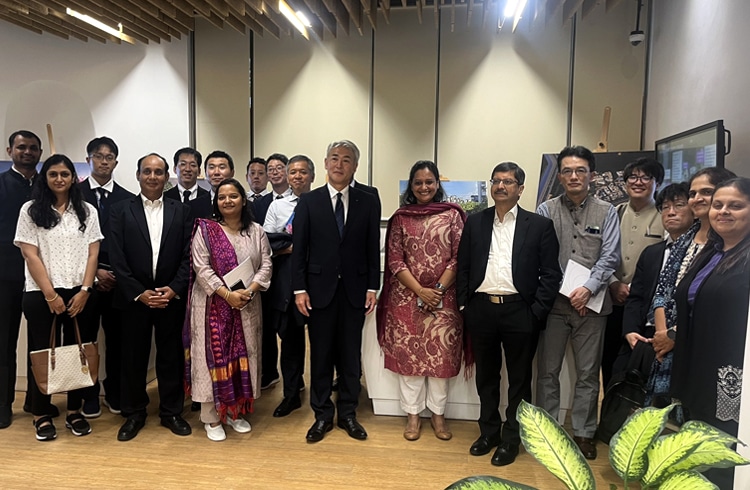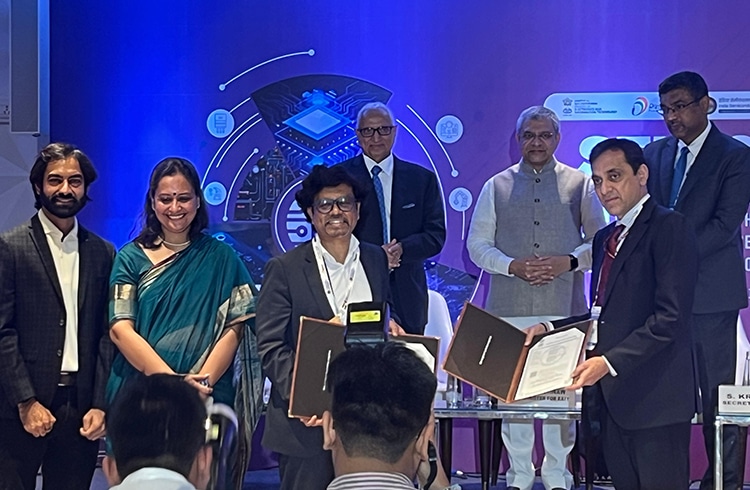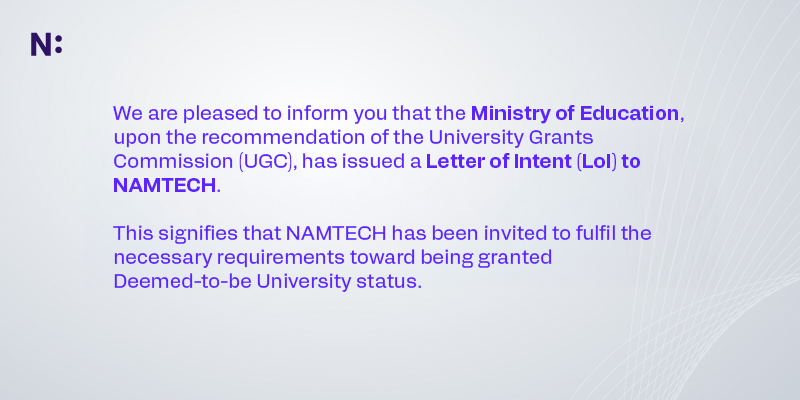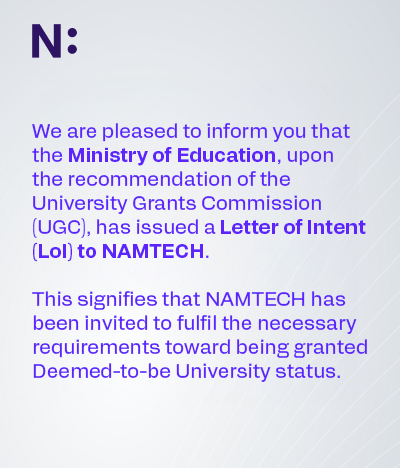“The best way to learn is by doing.” – an old Indian proverb.
Yet, how much of the engineering programs today involve “doing”?
If you have seen movies like “The Terminator” or “I, Robot”, you may have some apprehension about modern technologies and their role in the real world. Particularly in the manufacturing, engineering and technology niche, AI and its associated technologies are already making a huge impact. With the core technologies that run and operate the world rapidly changing, where does engineering stand?
This blog tackles a burning question about India’s MET sector: Is engineering even relevant anymore?
To start, the answer is a resounding no, engineering is not obsolete. But here’s the twist: it absolutely is waiting to be reinvented. And who will reinvent engineering? You – the candidate, the graduate, the engineer. Let’s get into the details of this answer.
Understanding Industry 4.0
Industry 4.0 is the combination of digital and physical manufacturing and production technologies. It’s not just about automation, or robots, or data – it’s about interconnectedness.
Smart manufacturing uses cyber-physical systems, the Internet of Things (IoT), artificial intelligence (AI), machine learning (ML), big data analytics, cloud computing, additive manufacturing (3D printing), and augmented reality, etc. to create smart factories, smart cities, and ultimately, a smarter civilization.
Machines, equipment, and devices in a smart factory are capable of communicating with each other, optimizing production in real-time, and predicting failures before they happen. Imagine an industrial infrastructure that monitors its own health, alerting engineers to potential issues before they become disastrous.
The Reality of Employability in Traditional Engineering
Now, let’s address the elephant in the room. The traditional engineering skill set does provide sound foundational knowledge, but it is no longer adequate to equip the workforce with the necessary skills. Amidst the technological progress demonstrated by Industry 4.0, the engineering curriculum still remains largely outdated.
The Unstop Talent Report 2025 reported that 83% of engineering graduates remain unemployed or end up without internship offers. Additionally, the India Skills Report 2025 highlights that there is a mismatch between available jobs and skills possessed by applicants. Many roles require specialized training, which isn’t readily accessible or available.
These numbers are large enough to awaken the Indian MET sector to reinvent its strategies and education delivery for relevance to Industry 4.0.
Reinventing Engineering for a Bright Future
So, what does this reinvention look like for you? It means an elemental reform in how you perceive your role, responsibilities, and continuous learning journey.
1. Transition From Problem-Solving to Integrating Systems
Traditionally, an engineer specialized in one branch – mechanical, electrical, civil, etc. This deep domain knowledge is still central for success. However, Industry 4.0 demands a broader perspective.
To be relevant for Industry 4.0, you need to be able to understand how different factory systems and equipment interact. This is because a factory floor today isn’t just about the mechanical integrity of machines.
It’s about their connectedness through sensors (IoT), the data they generate (Big Data), how that data is analyzed (AI/ML), and how it helps decision-making for better efficiency (Automation).
As an engineer, you are required to be the process orchestrator and the system integrator who ensures seamless communication and optimal performance across these interconnected machines.
2. Embrace Data as the New Language
Industry 4.0 operations generate large volumes of data every day. As an engineer, you need the skills to handle, understand, and manage this data. This isn’t a specialty reserved for computer science graduates anymore.
For example, as a mechanical engineer, you’ll be expected to analyze sensor data from a piece of equipment to predict/determine its maintenance needs. As a civil engineer, you’ll be expected to use drone-collected data and AI to monitor site progress for construction.
You need skills in big data analytics, data visualisation, and even foundational machine learning. Learn Python or R; understand SQL. These are no longer “optional extras” but core competencies.
3. Gain Cyber-Physical Systems (CPS) Expertise
This aspect of Industry 4.0 is where the digital and physical merge together. CPS is the backbone of smart systems, including technologies like autonomous vehicles, smart grids, and advanced robotics.
To ensure that India produces an updated workforce, the engineering programs are slowly evolving to offer B.Tech degrees in Cyber-Physical Systems. These courses focus on combining computation, control, and networking with physical world interactions.
You’ll be designing and managing systems in which the software directly influences the hardware, and vice versa. This requires a strong understanding of both.
4. Learn Automation and Robotics
It is a misconception that automation and AI will eliminate jobs for engineers. Automation can take over the repetitive, routine tasks. However, the demand for engineers who can design, deploy, maintain, and optimize these automated systems will increase.
Reports say that India ranked 7th in the annual robot installations in the world, reaching an installation volume of 8,510 units in 2023. Even with a 59% increase in robot installations, India still anticipates the creation of 11 million jobs in manufacturing in the coming decade.
You can safely say that this growth isn’t about fewer jobs, but different jobs. In essence, robots and collaborative robots (“Cobots”) will augment human contribution to the industry.
5. Engage in Continuous Learning
As technology evolves rapidly, what you learn today might be outdated in five years. Therefore, continuous learning needs to become a part of your life, not just your curriculum.
According to data published in The Hindustan Times, 87.5% of engineers believe upskilling is necessary to achieve career security and growth to address the constantly changing technological landscape.
You should actively participate in online courses, certifications, workshops, and industry partnerships. Companies should invest in re-skilling their workforce.
6. Soft Skills are Hard Skills Now
Technical prowess is mandatory with Industry 4.0. Additionally, to thrive in this interconnected setup, you need the skill to communicate, collaborate, problem-solve, and adapt quickly and effectively.
You’ll be expected to work in interdisciplinary teams with data science professionals, business strategists, and many other experts. Your ability to express complex technical concepts in clear, understandable language will give you a significant advantage.
India’s Opportunity: Leading the Charge
India is uniquely positioned to adopt Industry 4.0 with the resources to lead in it. The nation has a young workforce, a conducive startup ecosystem, and a growing emphasis on digital transformation.
According to data by The Confederation of Indian Industry (CII), 85% of Indian business leaders prioritize digitalisation. The impetus to grow Industry 4.0 in India is also fueled by Government initiatives like SAMARTH Udyog Bharat 4.0 and Make in India 2.0.
These are not just buzzwords; they are signals of a monumental shift creating immense opportunities for engineers who are ready to evolve.
Prepare for The Future of Industry with NAMTECH
So, to answer the initial question: Engineering is not obsolete. It’s simply shedding its old skin and emerging as a far more modernised, agile, and impactful practice. Your engineering degree is your ticket and passport into Industry 4.0, but it’s not the entire journey.
NAMTECH equips you with practical skills and applicable knowledge to smooth this journey towards Industry 4.0. Our iPMP programs in Industry 4.0 niches have been co-created by seasoned, experienced professionals of the industry. This brings to you the most relevant curriculum at the crux of the Fourth Industrial Revolution.
NAMTECH invests in you to craft your own experiences by learning through doing. The campus is integrated with physical and digital touchpoints, state-of-the-art labs, AR/VR capabilities, and much more to help you familiarize yourself with digital technologies.
Our programs encourage self-direction to encourage participation and engagement in the curriculum.
We offer a wide range of courses that cover all the technological aspects of Industry 4.0. Explore NAMTECH courses in semiconductor manufacturing, smart manufacturing and AI, robotics and automation, and sustainability engineering.
Remember: You are entering an era where innovation is the currency, and adaptability is the ultimate skill. Challenge the status quo and take charge to redefine engineering in the context of modernised industries.
FAQs
Will AI replace my job?
AI and automation are capable of replacing repetitive, clerical, and routine tasks. It is not employed for design and creative process, or anything complex that involves critical thinking. AI merely augments your work with supportive actions like enhancing productivity, extracting insights from data, etc.
Is AI necessary for Industry 4.0?
Yes, AI is one of the core pillars that support Industry 4.0 by facilitating automation, data analysis, and systems monitoring operations.
Do I need to be an engineer for Industry 4.0?
Yes, an engineering background helps you understand the technical aspect of new-age manufacturing, new technologies, and their uses and applications.

06 June, 2025
